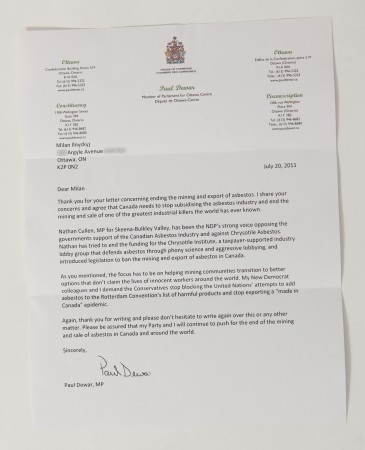I have been worried about Facebook for years. I worry about how personal information on users is their most valuable asset, and the ways in which they may seek to profit from it. More generally, I worry about the unintended consequences of creating massive searchable databases on social interactions.
What actually prompted me to ‘deactivate’ (not ‘delete’ yet) was two things.
Excessive time demands
First, Facebook is too time-demanding. People expect me to keep up to speed on their many postings, despite how there are hundreds or even thousands of status updates that appear every day. If you advertise your event on Facebook and I miss it completely, it is probably because I was trying to get some reading done, or enjoying a walk and a cup of coffee, or dealing with my neverending flood of unanswered email and so I missed the status update message or invitation for a few days.
If you really want me to know about something, you must at least send me a text or an email. Putting notice on Facebook (or Twitter, or your own website) is not a sufficiently attention-grabbing action to ensure that I will see it.
As I am writing this, I am ignoring a sizeable collection of projects that are in need of attention. I should be working on finding an apartment in Toronto, packing up my current apartment, and making plans for how to move. I should be researching possible doctoral programs, working on my research proposal, and corresponding with possible references and supervisors. I should also be reading various books from various stacks of semi-read tomes, refining my low carbon mutual fund idea, improving my chess, getting exercise, exploring some elements of Ottawa that are still unknown to me, planning a trip to Washington D.C., planning a trip to New Orleans, writing articles and letters to editors, processing and uploading photos, going out and taking new photos. I should be taking university courses, learning practical skills, responding to letters, searching for photographic gigs, learning to drive, joining clubs, going camping, and improving my data backup regime.
All of those tasks are better uses of time than Facebook.
Privacy
Second, I am worried about facial recognition. The only barrier to it becoming absolutely ubiquitous seems to be the availability of data on our faces. The cameras are already out there, and the software and the computing power to turn pixels representing faces into names are coming inevitably.
Someone with a lot of determination can dig around the internet and probably find dozens of photos of me to feed into a facial recognition algorithm. While I was on Facebook, however, this process was simplified to the point of easy automation. In thousands of photos, I had been specifically identified and even had the region of the photo containing my face marked.
Still not too isolated
So far, I have been glad to be off that particular grid. Anyone who actually wants to contact me has a wide variety of ways to do so. My email address and cellphone number are both on the ‘contact me’ page of my blog, and my blog comes up immediately when you Google my name. If that is too much work for a person to go through, it seems fair to say that they didn’t really want to contact me in the first place.
I don’t want to delete my Facebook account completely because it does have some value to me as an archive. Nearly all my photos from Oxford are in there, with tags and comments affixed. If Facebook provided a way to download all that as an elegant, accessible archive that can be used offline I would be happy to do so. I doubt, however, that they will ever provide such a tool. All their plans hinge on attracting people to the site and making them visit as often as possible. Helping them untangle themselves and walk away with whatever data they find valuable runs completely counter to that. Facebook actually lets you download your photos easily in quite a good archive format.
I will miss the chance to see what distant friends are up to easily, and to have the occasional fortuitous bit of contact with them. I will try to remember to send an out-of-the-blue email every once in a while.
P.S. I left LinkedIn too, but who cares about LinkedIn?


